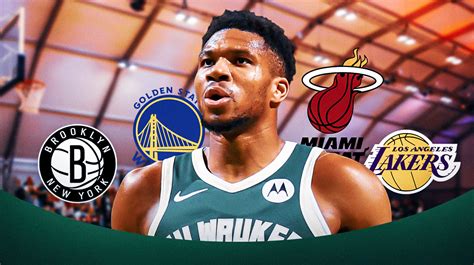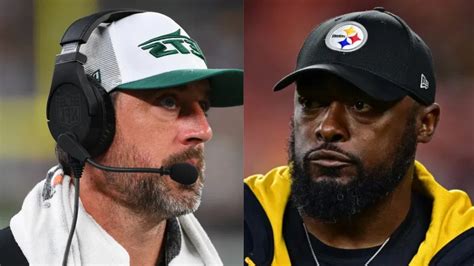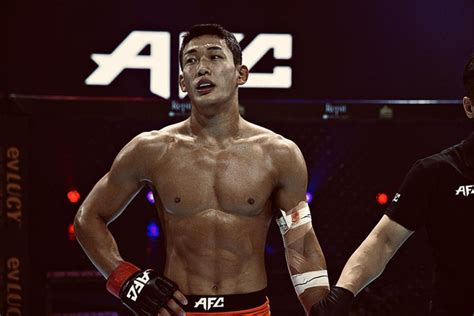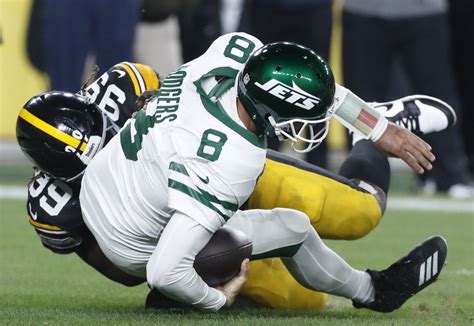
Giannis Antetokounmpo’s future with the Milwaukee Bucks is facing renewed uncertainty as reports surface suggesting the organization is prepared to explore trade options if the two-time MVP demands a contract that severely limits their financial flexibility to build a championship-contending roster. While no trade is imminent or guaranteed, the Bucks are reportedly wary of repeating the mistakes of other franchises who committed massive salaries to aging stars, only to find themselves unable to compete at the highest level.
Milwaukee Bucks management is reportedly prepared to consider trading Giannis Antetokounmpo if his contract demands hinder the team’s ability to construct a competitive roster, according to Yahoo Sports sources. This marks a significant shift in the organization’s stance, indicating a willingness to entertain the possibility of parting ways with their franchise cornerstone rather than risking long-term financial constraints. The team’s apprehension stems from witnessing other NBA teams struggle after committing substantial resources to aging stars without securing complementary talent.
The Bucks’ leadership fears the potential for a future where Antetokounmpo’s salary would hamstring their ability to acquire and retain the necessary supporting cast to contend for championships. “The Bucks are bracing for the possibility that Antetokounmpo could seek a deal that would severely limit their financial flexibility,” a source told Yahoo Sports. This concern has prompted internal discussions about the viability of trading Antetokounmpo if his demands prove too restrictive.
The decision, while difficult, reflects a strategic approach to long-term team building. The Bucks are determined to avoid scenarios where they are locked into exorbitant contracts with limited avenues for improvement. This approach signals a calculated risk, acknowledging the inherent challenges of trading a player of Antetokounmpo’s caliber but prioritizing the franchise’s sustained competitiveness.
While trading Antetokounmpo remains a contingency plan, it underscores the high-stakes nature of impending contract negotiations. The Bucks are entering a crucial period where they must balance their commitment to their star player with the necessity of maintaining a competitive roster. The outcome of these discussions will shape the franchise’s trajectory for years to come.
Contextual Background
Giannis Antetokounmpo, drafted by the Milwaukee Bucks in 2013, has transformed into one of the NBA’s most dominant players. His unique blend of size, athleticism, and skill has earned him two MVP awards, a Defensive Player of the Year award, and an NBA championship in 2021. He has consistently expressed his loyalty to Milwaukee and a desire to bring sustained success to the franchise.
However, the NBA landscape is driven by both player empowerment and the realities of the salary cap. Supermax contracts, designed to reward franchise cornerstones, can also limit a team’s ability to attract and retain other talented players. The Bucks have already navigated this challenge, constructing a roster around Antetokounmpo that has consistently contended for championships in recent years. Key acquisitions like Jrue Holiday and Khris Middleton have played crucial roles in the team’s success.
But Middleton’s age and injury history, combined with Holiday’s departure to the Boston Celtics, have raised concerns about the team’s long-term outlook. The Bucks’ front office, now led by General Manager Jon Horst, faces the daunting task of maintaining a championship-caliber roster while managing the financial implications of Antetokounmpo’s next contract.
The Financial Implications
Antetokounmpo is currently eligible for a contract extension that could make him one of the highest-paid players in the NBA. A supermax extension, specifically, would tie up a significant portion of the Bucks’ salary cap for years to come.
The NBA’s salary cap is designed to promote competitive balance by limiting the amount of money teams can spend on player salaries. The cap is a complex system with numerous exceptions and rules, but the core principle remains the same: teams must manage their payroll effectively to remain competitive.
If Antetokounmpo demands a contract that pushes the Bucks deep into the luxury tax, it could severely restrict their ability to sign free agents, trade for players, or retain existing talent. The luxury tax is a penalty imposed on teams that exceed the salary cap, and it becomes increasingly punitive as a team’s payroll rises further above the cap.
The Bucks are acutely aware of the potential consequences of such a scenario. They have witnessed other teams, such as the Brooklyn Nets with their ill-fated trio of Kevin Durant, Kyrie Irving, and James Harden, struggle to build a cohesive and sustainable championship contender due to salary cap constraints.
Potential Trade Scenarios
The prospect of trading Giannis Antetokounmpo is undoubtedly a daunting one for the Bucks. He is a generational talent and a beloved figure in Milwaukee. However, if his contract demands prove insurmountable, the team would have to consider potential trade scenarios.
Any trade involving Antetokounmpo would likely be one of the biggest in NBA history, rivaling the trades of Kevin Garnett to the Boston Celtics or LeBron James to the Miami Heat. The Bucks would demand a massive return in terms of young players, draft picks, and potentially established stars.
Several teams would likely be interested in acquiring Antetokounmpo, including those with significant cap space and a desire to compete for a championship immediately. Possible destinations could include:
- The Golden State Warriors: Pairing Antetokounmpo with Stephen Curry and Klay Thompson would create a formidable dynasty.
- The New York Knicks: The Knicks have long coveted a superstar player and possess a treasure trove of draft picks and young talent.
- The Los Angeles Lakers: A pairing with LeBron James (again) or Anthony Davis would instantly make the Lakers championship favorites.
- The Oklahoma City Thunder: With a massive collection of draft picks, the Thunder could offer a compelling package to accelerate their rebuild.
- San Antonio Spurs: Guided by Coach Popovich, they could make an offer to create a new dynasty.
However, any trade would be fraught with challenges. The Bucks would have to carefully weigh the potential return against the loss of their franchise player. They would also have to consider the impact on the team’s fan base and the city of Milwaukee.
The Bucks’ Perspective
The Bucks’ willingness to consider trading Antetokounmpo, while drastic, reflects a commitment to long-term success. They are not willing to mortgage their future for short-term gains. They want to build a sustainable contender that can compete for championships for years to come.
This approach aligns with the philosophy of ownership, particularly Wes Edens and Marc Lasry (before his partial sale of the team). They have consistently demonstrated a willingness to invest in the team but also a commitment to fiscal responsibility. They understand that sustained success requires careful planning and prudent financial management.
The Bucks also recognize that the NBA landscape is constantly evolving. The rise of player empowerment has given stars more control over their careers than ever before. Teams must be proactive in managing their relationships with their star players and addressing their concerns.
Giannis’s Perspective
Giannis Antetokounmpo has repeatedly stated his loyalty to Milwaukee and his desire to win championships with the Bucks. He has embraced the city and its fans, and he is deeply invested in the team’s success.
However, Antetokounmpo is also a fierce competitor who wants to win at the highest level. He has seen firsthand how difficult it is to win a championship, and he understands the importance of having a strong supporting cast.
It is possible that Antetokounmpo would be willing to take a slight pay cut to help the Bucks retain talent and improve the team. However, he is also aware of his market value and the potential financial rewards of signing a supermax contract.
Ultimately, Antetokounmpo’s decision will be based on a combination of factors, including his loyalty to Milwaukee, his desire to win championships, and his financial considerations.
The Risk of Losing Giannis for Nothing
One of the biggest fears for the Bucks is the possibility of losing Antetokounmpo for nothing in free agency. If they are unable to agree to a contract extension, Antetokounmpo could become an unrestricted free agent and sign with any team he chooses.
This would be a devastating blow for the Bucks. They would lose their franchise player without receiving any compensation in return. This is the scenario that the Bucks are trying to avoid at all costs.
The Impact on Milwaukee
Giannis Antetokounmpo is more than just a basketball player in Milwaukee. He is a cultural icon, a role model, and a symbol of hope for the city. His presence has brought unprecedented attention and success to Milwaukee.
If Antetokounmpo were to leave, it would have a significant impact on the city. The Bucks would lose their star player, and the city would lose one of its most beloved figures.
However, the Bucks are also aware that they have a responsibility to the city to build a sustainable contender. They cannot allow themselves to be held hostage by one player’s demands. They must make decisions that are in the best long-term interests of the franchise and the city.
Conclusion
The situation surrounding Giannis Antetokounmpo’s future with the Milwaukee Bucks is complex and uncertain. While no trade is imminent, the team’s willingness to consider that possibility underscores the high stakes of the upcoming contract negotiations. The Bucks must balance their commitment to their star player with the necessity of maintaining a competitive roster and managing their financial resources prudently. The outcome of these discussions will have a profound impact on the franchise’s trajectory for years to come. The decision hinges on finding a balance between rewarding a generational talent and ensuring the long-term viability of the team’s championship aspirations.
Frequently Asked Questions (FAQs)
1. Is Giannis Antetokounmpo definitely getting traded?
No, a trade is not definite. The article emphasizes that the Bucks are prepared to explore trade options as a contingency plan if Antetokounmpo’s contract demands would severely limit the team’s financial flexibility. A trade will only be considered if the contract negotiations reach an impasse. The Bucks prefer to keep Antetokounmpo.
2. Why would the Bucks even consider trading Giannis? He’s their best player!
The Bucks are concerned about the long-term impact of a potential supermax contract on their ability to build a competitive roster. While they value Antetokounmpo immensely, they want to avoid a situation where his salary restricts their ability to acquire and retain other talented players. They are prioritizing long-term sustainability and competitiveness. The possibility of losing him without compensation is also a concern.
3. What kind of return would the Bucks expect in a trade for Giannis?
The Bucks would demand a significant return, including a combination of young players with high potential, multiple first-round draft picks, and potentially established All-Star-caliber players. The trade would likely be one of the biggest in NBA history, reflecting Antetokounmpo’s immense value.
4. What teams might be interested in trading for Giannis?
Several teams would likely express interest, particularly those with ample cap space and a desire to contend for a championship immediately. Potential destinations include the Golden State Warriors, New York Knicks, Los Angeles Lakers, Oklahoma City Thunder, and potentially the San Antonio Spurs. Each team has different assets they could offer.
5. What does Giannis himself think about all of this?
Giannis has repeatedly expressed his loyalty to Milwaukee and his desire to win championships with the Bucks. However, he also wants to play on a team that is capable of competing at the highest level. His decision on a contract extension will likely depend on his assessment of the Bucks’ ability to build a championship-caliber roster around him. His decision will be influenced by winning above all else. Expanded Context and Analysis:
Historical Precedents of Salary Cap Struggles:
The Milwaukee Bucks’ apprehension regarding Giannis Antetokounmpo’s potential contract demands is rooted in the historical lessons learned from other NBA teams that have faced similar challenges. Several franchises have found themselves in precarious situations after committing vast sums of money to aging or injury-prone stars, only to discover that their ability to build a supporting cast had been severely compromised.
The Brooklyn Nets’ experiment with Kevin Durant, Kyrie Irving, and James Harden serves as a cautionary tale. While the trio possessed undeniable talent, their combined salaries consumed a significant portion of the Nets’ cap space. This limited their ability to acquire quality role players, ultimately contributing to the team’s inability to achieve sustained success and their eventual disbandment. The Nets traded away a significant amount of draft capital to acquire these players, only to see the experiment fail due to injuries, off-court issues, and ultimately, a lack of roster depth.
The Los Angeles Lakers’ struggles in the late 2000s provide another example. After signing Kobe Bryant to a lucrative extension, the Lakers found it difficult to add complementary pieces around him. While they eventually won two championships with Pau Gasol, their roster depth was often a concern, and they struggled to remain competitive after Bryant’s prime. The Lakers faced numerous challenges in managing their cap space and finding players who could effectively contribute alongside Bryant’s high salary.
The Bucks are determined to avoid a similar fate. They recognize that building a championship team requires more than just one or two superstars. It requires a deep and versatile roster with players who can contribute in a variety of ways. Committing too much money to one player can make it difficult to acquire and retain those types of players.
The Evolution of Player Empowerment:
The NBA has undergone a significant shift in recent years, with players gaining more power and control over their careers. This trend, known as player empowerment, has had a profound impact on the league’s landscape.
Superstar players are no longer content to simply play out their contracts and hope for the best. They are increasingly willing to use their leverage to demand trades, sign with new teams in free agency, or even dictate the team’s personnel decisions.
This shift has made it more challenging for teams to retain their star players. Teams must now be proactive in managing their relationships with their star players and addressing their concerns. They must also be willing to make difficult decisions, such as trading a star player if it is in the best long-term interests of the franchise.
Giannis Antetokounmpo is a prime example of a player who has the power to shape his own destiny. He is one of the most dominant players in the NBA, and he is highly sought after by teams around the league. If he decides that he wants to leave Milwaukee, there is little the Bucks can do to stop him.
The Importance of Front Office Management:
In the modern NBA, the role of the front office has become more critical than ever. Teams must have a competent and forward-thinking front office to navigate the complex challenges of the salary cap, player empowerment, and roster construction.
The Milwaukee Bucks’ front office, led by General Manager Jon Horst, faces a daunting task in managing Antetokounmpo’s contract situation. They must balance the team’s commitment to their star player with the necessity of maintaining a competitive roster and managing their financial resources prudently.
Horst has a proven track record of making shrewd moves, such as acquiring Jrue Holiday and drafting promising young players. However, he will face perhaps the biggest test of his career in the coming months.
The Bucks’ front office must carefully analyze the market value of Antetokounmpo’s services and determine how much they are willing to pay him. They must also assess the team’s long-term outlook and identify potential trade partners if a deal cannot be reached.
The decisions made by the Bucks’ front office will have a profound impact on the franchise’s future.
The Emotional Impact on Fans:
The prospect of trading Giannis Antetokounmpo is undoubtedly unsettling for Milwaukee Bucks fans. He has become a beloved figure in the city, and his presence has brought unprecedented success and attention to the franchise.
For many fans, Antetokounmpo represents more than just a basketball player. He is a symbol of hope, hard work, and perseverance. He has inspired countless individuals to pursue their dreams and overcome adversity.
The thought of losing Antetokounmpo is devastating for many fans. They fear that the team will return to irrelevance and that the city will lose one of its most cherished figures.
However, Bucks fans also understand that the NBA is a business and that difficult decisions must sometimes be made. They trust that the team’s ownership and front office will act in the best long-term interests of the franchise.
Alternative Contract Structures and Negotiations:
While the article focuses on the potential for a supermax contract as a point of contention, there are alternative contract structures and negotiation strategies that the Bucks and Antetokounmpo’s representatives could explore. These alternatives aim to strike a balance between fairly compensating Antetokounmpo for his value and preserving the team’s financial flexibility.
One option could be a shorter-term extension with higher annual salaries, allowing Antetokounmpo to maximize his earnings in the near future while giving the Bucks more flexibility in the long run. Another possibility is structuring the contract with incentives based on team performance, such as reaching the NBA Finals or winning a championship. This would align Antetokounmpo’s financial interests with the team’s success, potentially motivating him to take a slightly lower base salary.
Creative contract negotiations could also involve deferred payments, allowing the Bucks to spread out the financial burden over a longer period. However, deferred payments can have tax implications and may not be appealing to Antetokounmpo.
Ultimately, the success of these negotiations will depend on both sides being willing to compromise and find common ground. Antetokounmpo must understand the Bucks’ concerns about long-term financial stability, while the Bucks must recognize Antetokounmpo’s immense value and his desire to be compensated accordingly.
The Ripple Effect on the NBA Landscape:
The outcome of the Giannis Antetokounmpo situation will have a significant ripple effect on the entire NBA landscape. If the Bucks decide to trade Antetokounmpo, it would create a bidding war among teams vying for his services. This would likely result in a massive haul of assets for the Bucks and a seismic shift in the balance of power in the league.
The team that acquires Antetokounmpo would instantly become a championship contender. Other teams would be forced to reassess their strategies and adjust their rosters to compete with the new powerhouse.
Even if Antetokounmpo stays in Milwaukee, the negotiations surrounding his contract will serve as a precedent for future superstar contracts. Teams will be closely watching the details of the agreement to gain insights into how to manage their own star players’ demands.
The entire NBA community will be eagerly awaiting the resolution of the Giannis Antetokounmpo situation. It is a story that will undoubtedly shape the league for years to come.
The Importance of Coaching and Player Development:
While financial resources and star power are essential for success in the NBA, the importance of coaching and player development cannot be overstated. The Milwaukee Bucks have benefited from strong coaching under Mike Budenholzer and a commitment to developing young talent.
A capable coaching staff can maximize the potential of a roster by implementing effective strategies, fostering a positive team culture, and improving individual player skills. Player development programs can transform raw talent into valuable contributors.
Even if the Bucks were to trade Giannis Antetokounmpo, they would still need to prioritize coaching and player development to rebuild their roster and remain competitive. The ability to identify and cultivate young talent is crucial for sustained success in the NBA. The Global Impact of Giannis Antetokounmpo:
Giannis Antetokounmpo’s impact extends far beyond the basketball court and the city of Milwaukee. As a global icon, he represents the power of perseverance, hard work, and the pursuit of dreams. His story of rising from humble beginnings in Greece to become one of the NBA’s most dominant players has inspired millions around the world.
Antetokounmpo’s success has also helped to promote basketball globally, particularly in Europe and Africa. He has become a role model for young athletes who aspire to follow in his footsteps. His global appeal makes his trade extremely complicated.
His foundation has contributed meaningfully to various causes.
Conclusion Revisited:
The situation surrounding Giannis Antetokounmpo’s future with the Milwaukee Bucks remains a complex interplay of financial constraints, player empowerment, and the unwavering pursuit of championship contention. While the prospect of a trade looms as a contingency, it underscores the immense pressure on the Bucks’ front office to navigate these intricate dynamics. The organization’s preparedness to explore such drastic measures highlights a commitment to long-term sustainability, acknowledging the pitfalls of sacrificing future flexibility for short-term gains. The coming months will reveal the outcome, shaping the trajectory of both the franchise and the league.









